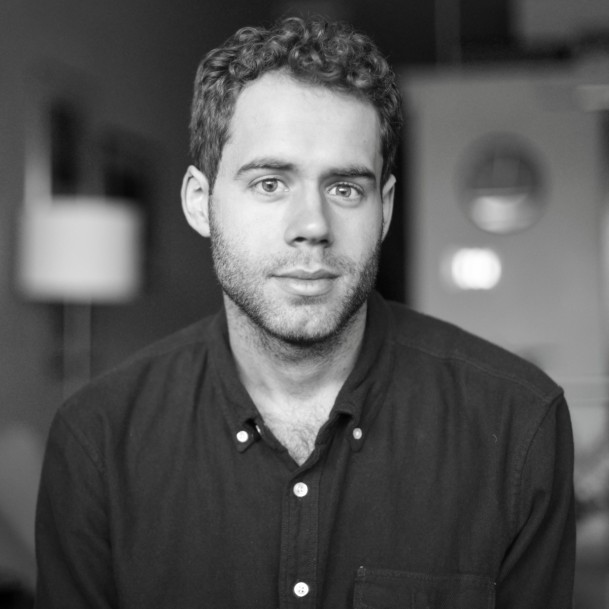6 in the Six: The Problem with “The Show Must Go On”
Intermission is officially 6! Six exciting and unpredictable years of fostering connections between artists and audiences, of encouraging and curating discussions about the great landscape of Canadian theatre. To celebrate our journey, we’re bringing back our top six performing articles from the past six years, released monthly for the next six months, to remind our audiences of how far we’ve all come.
In May, we’re reflecting on our top article of 2018: Nathan Carroll’s intimate exploration of mental health, perseverance, and change.
It’s cold in Winnipeg in February.
The sun is streaming in through the window, it’s just past noon, and I’m on the phone with a counsellor from the Crisis Response Centre. I’m sobbing so hard that it’s a struggle to form sentences. Doing my best to steady my voice, I try to communicate what I’m feeling to the stranger on the other side of the line: that my anxiety is so overwhelming I don’t want to exist, that every waking moment is consumed by guilt and panic, that I don’t want to be me anymore. I don’t know what she can say or do that other people haven’t already tried, but this phone call feels like one of my last options.
I’ve never been to Winnipeg before. I’m living downtown in a furnished apartment, making a good wage, and working on a beautiful show at one of the most prestigious regional theatres in the country. But I can’t escape my mind and the thoughts wreaking havoc on me. I’m in one of those suffocating moments when nothing I can think of doing brings me relief. I think about hurting myself. About how physical pain could distract me from what I’m feeling.
I’ve been doing everything I’m supposed to be doing. Journaling. Chanting. Meditating. Eating well. Exercising. I’ve even been reading a book called Self Esteem, though I’m too embarrassed to bring it to work. I’ve been getting outside as much as possible during a Manitoba winter. I’ve been doing the cognitive behavioural therapy work I can remember and reaching out to people I trust for support.
But I’m not getting better.
While walking home from an evening performance at the height of my mental crisis, a castmate told me about an actor she had gone to theatre school with who had killed himself over the weekend. His struggles with mental illness had played out in public over social media, and his death followed shortly after a post in which he had apologized for his behaviour and assured his followers that he was “over the hump” and ready to get better. His name was Scott J. Campbell and, though I didn’t know him personally, I had seen him play Tony in West Side Story when I was a teenager. I had followed his career since then, and he appeared to have it all. He was handsome with a killer voice, making his Broadway debut early in his career, travelling across the USA on the national tour of American Idiot, and then returning to Broadway—this time playing the lead role of Gerry Goffin in Beautiful. He was a Canadian making it big in New York, helping all of us back home believe it was possible.
Hearing about Scott made me think of another actor we lost to suicide in the past year. Jonah McIntosh worked at Neptune Theatre and the Shaw Festival shortly after graduating from theatre school. In his short career, he established himself as a fierce talent and a kind and winsome colleague. When he took his own life last summer, I witnessed his death shake our community in a profound way.
When my colleague told me about Scott’s death, as we walked quickly down Winnipeg’s Main Street bracing against the cold, I was in crisis myself.
My first thought was, “I get it.”

When I was a teenager, with dreams of starring in musicals and working at the Stratford Festival, I told myself that all I would ever need to feel fulfilled was the ability to make a living as an actor. In the past year I have starred in musicals, worked at the Stratford Festival, and made the majority of my income from performing, yet I have been fighting mental illness that’s strong enough to defeat all of my coping methods and strategies. The fact that happiness doesn’t always accompany my success fills me with deep shame.
Mental illness seems to affect actors and theatre artists at disproportionate rates. It’s our job to be vulnerable, to experience extreme highs and lows, and to act out ecstatic, harrowing, or humiliating situations in front of large groups of strangers. We face rejection with alarming frequency, sleep in strange beds in new cities, and acclimate to different work environments every few months. All of these things are part of why we love doing what we do, but it is not surprising when the volatility of our profession contributes to poor mental health.
It feels selfish and scary to write about my own struggles.
Selfish because my depression and anxiety seems banal when I look at it on the page. It looks like how I fear others will see it: easy to get over, all in my head, just an excuse.
Scary because I wonder who’s going to be nervous about working with me after they read about my mental instability, who’s going to be upset when they find out I was deeply unhappy while working at their theatre.
I’ve been inspired by the bravery of other people who have written about their mental health in this magazine. I return with particular frequency to Anusree Roy’s “It’s Time to Talk About Mental Health,” Christine Horne’s “Wrestling with ‘Success,’” and Megan Robinson’s “Confessions from Theatre School” when I need a reminder that I’m not alone

I know that I carry so much privilege and that my mental health struggles are free from the racism, sexism, and transphobia rife in our world.
I also know that I am lucky to be living in Canada.
In Toronto, I’ve accessed free walk-in counselling at the Sherbourne Health Centre and called the AIDS & Sexual Health InfoLine during a scare.
In Winnipeg, I’ve used the twenty-four-hour Crisis Line, which runs out of the Crisis Response Centre and offers both a round-the-clock mental health walk-in clinic and a mobile team ready to be dispatched to patients’ homes should they be unable to make it in on their own. I’ve had access to free walk-in counselling at Klinic, open for long hours nearly every day of the week.
The care I’ve discovered in these two cities reassures me that similar services are available across the country, but I didn’t know they existed until someone I had confided in pointed me in the right direction.
Equity, my professional association, is also useful in important ways. My daily medication is covered while I am on contract, and I know that — should my mental illness prevent me from working for a short period of time — I could submit a request to the Actor’s Fund of Canada for help with short-term income replacement.
But I don’t think nearly enough is being done.
When I reflect on the number of artists I know who suffer from mental health issues, and the unique stressors that come with our profession, the resources available to us and the awareness we have about public services feel meagre and insufficient.
Equity members have access to between $600 and $1200 every year for each of these treatments: physiotherapy, chiropractic, massage therapy, speech therapy, osteopathy, chiropody, podiatry, acupuncture, naturopathy, and homeopathy. Though I am grateful for this coverage, I would trade every penny for therapy or counselling. The fact that the only money allocated to any form of mental health treatment is the health and wellness benefit, which offers $100 per year spread out over seventy-two types of services, ranging from dental to birth control to hair replacement, is a shame.

What is happening in our industry in relation to harassment in the workplace serves to further highlight the need for a comprehensive strategy to address mental health and trauma. I am a staunch proponent of the Not in Our Space Initiative, a nationwide campaign launched by Equity in 2016 to promote safe work environments and establish zero tolerance for harassment in rehearsal rooms. But I want it to grow to include action on mental health or for Equity to launch a similar initiative addressing these equally important issues.
This could include requiring a theatre to identify a permanent staff member as someone specifically equipped to listen to and address the mental health needs of their contract employees. It could include training Equity members in crisis prevention and identifying those members on the first day of rehearsal. It should require theatres to give detailed information about the free mental health resources available in the area at the beginning of each contract, especially when those contracts include artists living away from home.
Mental health education and awareness should not be the responsibility of our association or theatres alone. I don’t remember hearing the words “anxiety,” “depression,” or “mental health” in my entire three years at theatre school. Considering how intimate our classes were and how frequently our teachers urged us to plumb the depths of our thoughts and feelings, I am shocked that our mental health as students was not a part of the conversation or curriculum.
We’re told all the time that “the show must go on.”
During my lowest points in Winnipeg, I wanted nothing more than to know that the show could go on without me. That I could go home, access every resource and support available to me, and ensure that I didn’t harm myself, without the fear of compromising my future relationship with the theatre or damaging my reputation in the industry. Even though making it to work every day and putting on a good performance in spite of my mental state allowed me to feel like I was conquering my illness, I want to know that if anyone finds themselves without this ability while on a contract, there is a system in place to help them survive at any cost. That there is a net below us when the tightrope gets too thin.
We’ve lost too many people.
It’s my last week in Winnipeg and the worst of the cold is over. After experiencing the sting of -30 and -40 degrees, walking outside with the mercury just below zero feels relatively balmy. I can think ahead to how much happier I’ll feel at the height of summer lying on a beach but, today, -1 feels like heaven.
I’m doing better. I’ve been back on medication for three weeks and I’m beginning to feel some of its positive effects. My physical symptoms of anxiety remain constant, but they feel manageable in a way they didn’t even one week ago. My brain is still spinning every tiny negative thought into a worst-case scenario, but the work I did during the peak of my crisis is serving me: I can sit in the anxiety and pass through to the other side. I’m even processing many of my anxiety attacks on my own and, when I can’t, I’m doing a better job of spreading out who I contact among the many patient people I am lucky to call my supports.
I can imagine myself happy and it is not so far away.

I’m relieved to find myself having fun in this show again. I’m exploring Winnipeg’s top-notch coffee shops, using my days to take in different parts of the city, and writing about what I’ve experienced. Excited for my upcoming projects and accessing the creativity I’ve buried for months, I’m realizing how eager that part of me has been to burst through to the surface.
I’m still scared and ready to be home. Every time I lose control I hope it will be the last time. I’m twenty-eight years old. Surely I should be able to “handle it” by now.
It’s a terrifying prospect to accept yourself for who you are when who you are has the capacity to hurt the people around you and yourself.
But I remind myself that the parts of me that can fuel my mental illness—my sensitivity, creativity, and depth of feeling—are also gifts. That who I am is loved and has worth. That I’m blessed with the opportunity to work in this business and have resources available to me to help me work on myself. After everything I’ve experienced this winter, I’m inspired to do what I can to advocate for those who struggle with mental health until we can all rest assured in our ability to speak honestly, access the care we need, and stay alive.










Comments